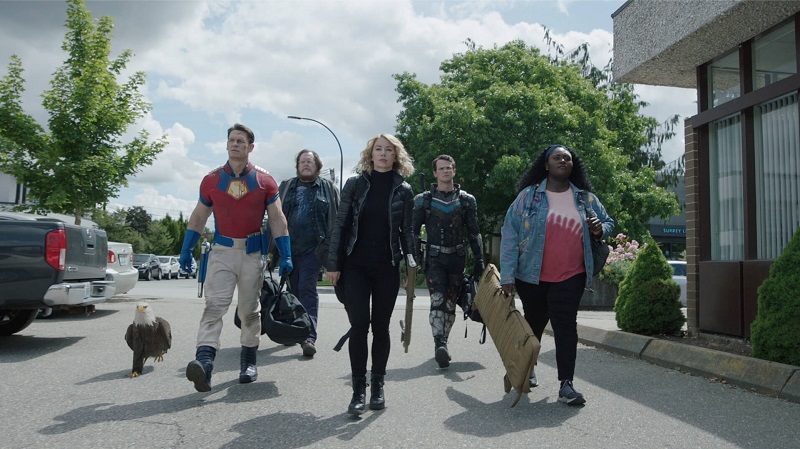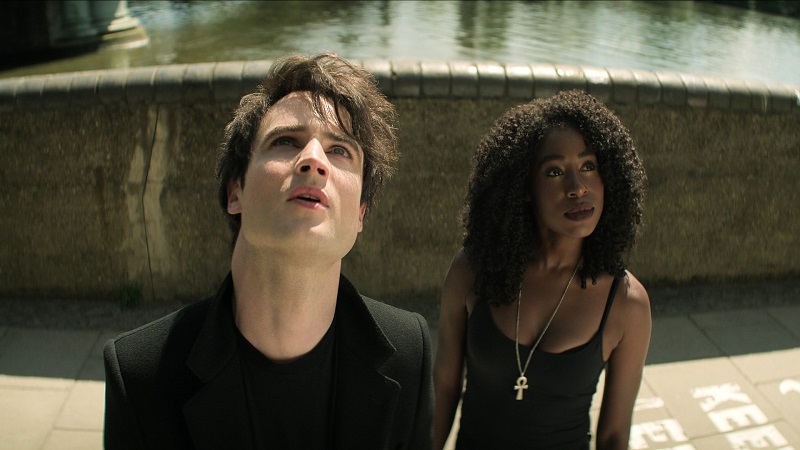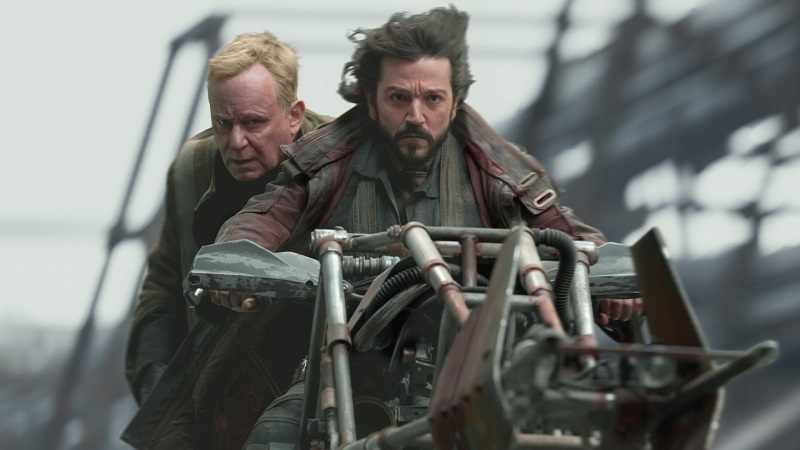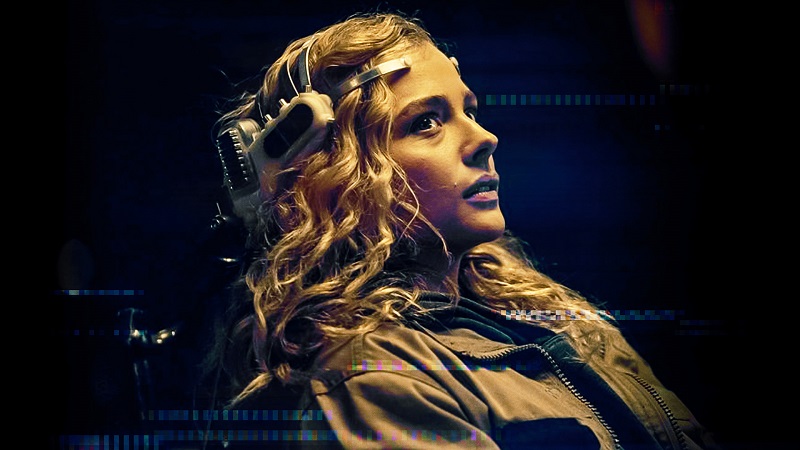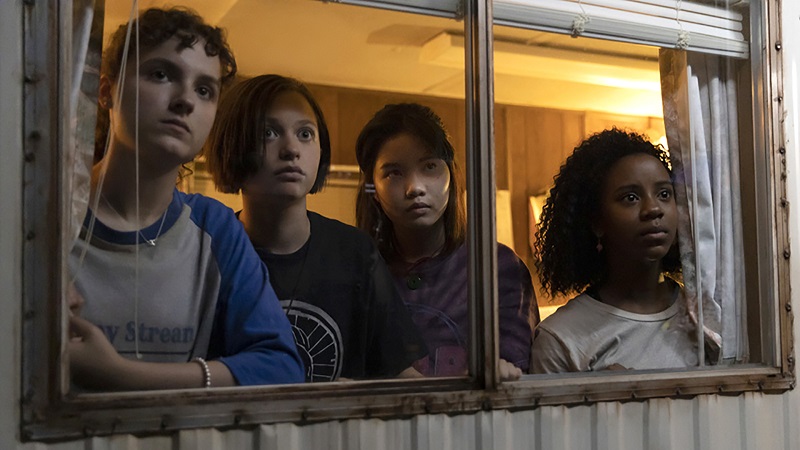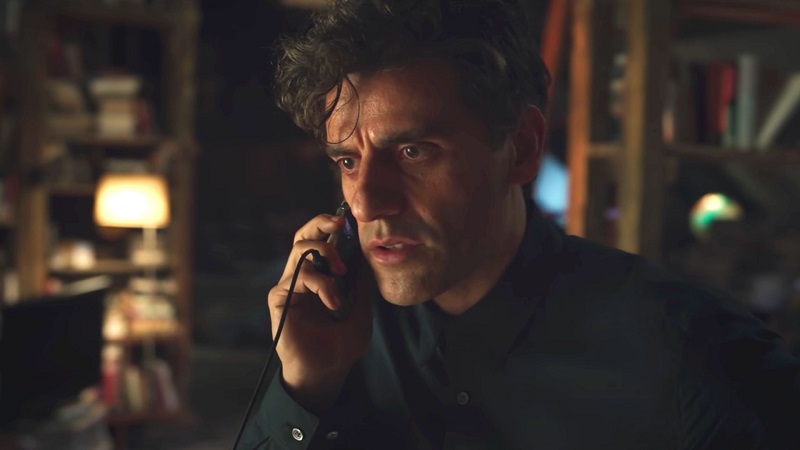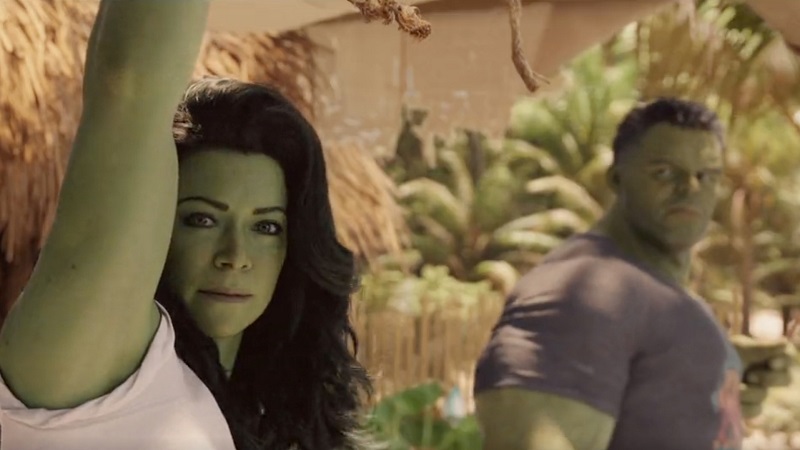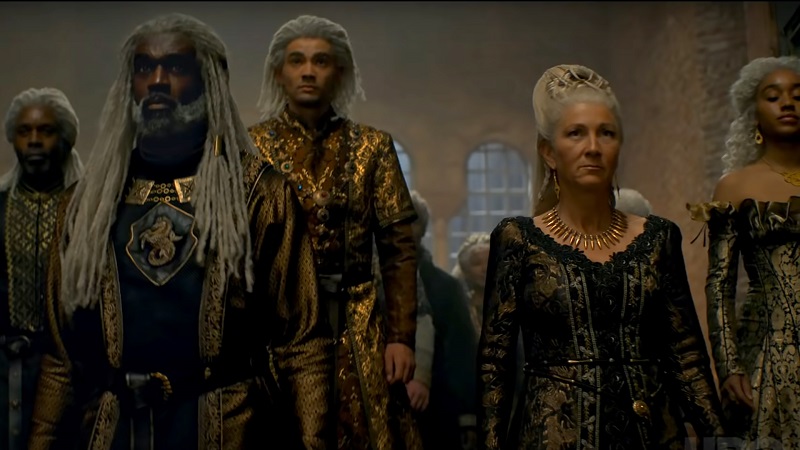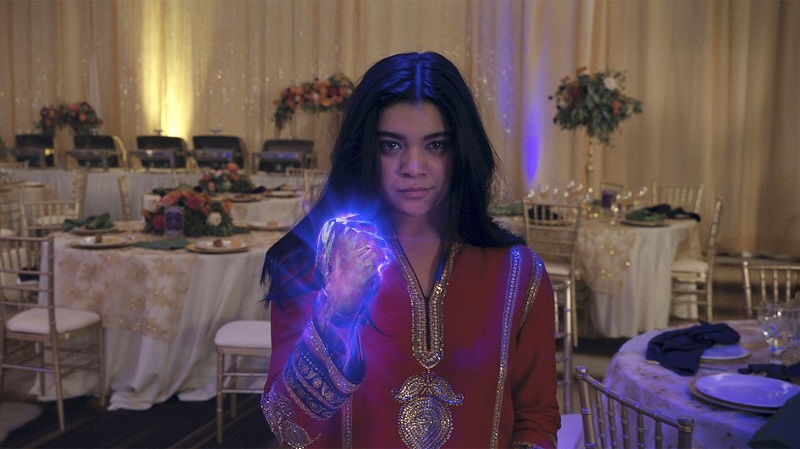The Best TV And Streaming Series Of 2022
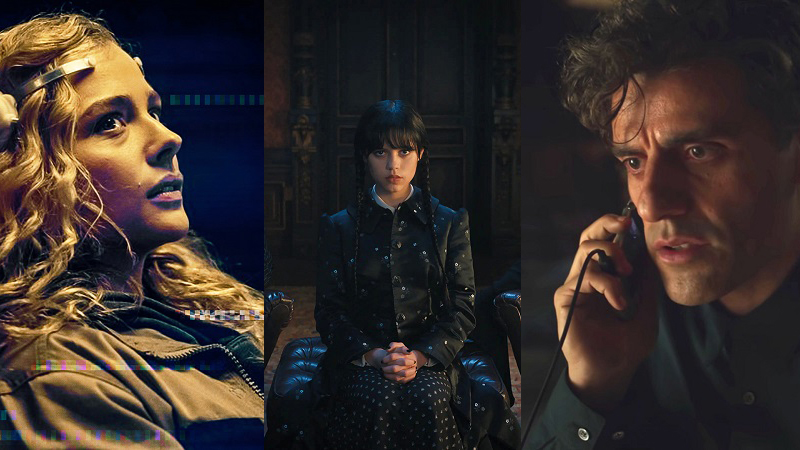
This past year was loaded with streaming series aimed at the nerd audience. Because of that some of them were high quality and some — less so. One thing that did become perfectly clear was that money does not equal quality. HBO spent a ton of money on House of the Dragon and Amazon’s Prime Video spent even more on The Lord of the Rings: The Rings of Power. The former prequel was an actual improvement over much of its predecessor, Game of Thrones, and the latter was an underwhelming prequel which made completely unnecessary changes to Tolkien’s existing lore.
At the other end of the budget scale was the HBO Max series Peacemaker, which had a real run-and-gun production feel and was still one of the best R-rated superhero products made.
Below are my favorite TV and streaming series from the past year. Let me know in the comments what you think of the list, and what your list would look like.
If you like our work and want to show your appreciation, feel free to tip us at Ko-fi or become a patron on Patreon.
Peacemaker
Apparently James Gunn was so smitten by John Cena’s portrayal of Peacemaker, the ultimate villain of the movie The Suicide Squad, that he dreamed up a spinoff series while making the movie. Somehow, the pre-Discovery merger HBO Max execs liked his series pitch about a former alt-right crime fighter who is very comfortable with murdering bad guys and collateral damage, and Peacemaker started production shortly after The Suicide Squad was released.
The series is every bit as funny and as touching as the R-rated superhero standard at the time, Deadpool — or the PG-13 rated Gunn movie for the MCU, Guardians of the Galaxy. Cena is surprisingly good with both the broad comedy and the deeply emotional moments of a man dealing with his father’s disappointment and the guilt of his brother’s death. And Robert Patrick deserves an Emmy nod for his portrayal of Cena’s racist, white nationalist, fascist father.
The Sandman
One of the most highly anticipated comic book adaptations finally became a reality this year, and The Sandman was worth the wait — well, for everyone who didn’t prove they were a racist by complaining all over social media that Death was played by a black woman (Kirby Howell-Baptiste in a portrayal that made me wish she was in more episodes). Tom Sturridge as Dream (aka Morpheus or the Sandman) perfectly captured the David Bowie-meets-Robert Smith vibe of the character. Other standouts include Gwendoline Christie as Lucifer, Mason Alexander Park as Desire and Boyd Holbrook as The Corinthian.
While the final story arc got bogged down a bit by having too many characters that seemed like you needed to pay attention to when you really didn’t, it still was the most chilling part of the whole series. That made up for the fact that it was a bit less tightly scripted than the rest, in my mind at least. Netflix made us wait far too long for news of a Season 2, but we will be getting one.
Andor
The best written, best acted, most tension-filled piece of Star Wars content ever made. Period. Now, that doesn’t mean every Star Wars fan will love Andor like I do. It has none of the science fantasy elements of the Skywalker saga. There is not a light saber or force user to be seen. Tony Gilroy, the show creator, perfects what he started in Rogue One — showing what it cost the non-superpowered members of the Rebellion to fight against fascism and tyranny. And like he did in the Jason Bourne movie series, Gilroy makes every single character both believable, and watchable. Even Dedra Meero (Denise Gough), the ambitious Imperial Security Bureau officer, is both human and engagingly interesting, despite the fact that she is unflaggingly evil by any standard.
Diego Luna brings even more depth to Cassian Andor than he did in Rogue One, but Stellan Skarsgård as power player spy Luthen Rael is another serious Emmy contender. Everyone is excellent in this series, from Andy Serkis right down to British character actor Lee Boardman, who has maybe five minutes of screen time at the beginning of Ep. 1.
The Peripheral
If you like the work of William Gibson (Neuromancer, Johnny Mnemonic), but wish it had less of the depressing dystopian cyberpunk feel, then the Prime Video adaptation of his novel The Peripheral is for you. To be clear, you could call this series dystopian and you wouldn’t be wrong. And it also fits in the cyberpunk category pretty well too. But it is more of a science fiction near future adventure story flavored by those two categories, than a work in which those elements define the story.
Chloë Grace Moretz is excellent as lead Flynne Fisher, as is Jack Reynor as her brother Burton, a veteran of the Texas Succession War. The intricate plot bounces around from their hometown in western North Carolina to a virtual reality London set some 70 years in the future — that may be less virtual than it seems. The Peripheral works well as an action-adventure story and a fish out of water tale and is loaded with Gibson’s interesting ideas about what our near future will be like, warts and all.
Wednesday
Because lead actress Jenna Ortega is on screen, often in relative close-up shots, for what must be 50 percent of the runtime of the series Wednesday, it lives or dies by her performance. Luckily, Ortega keeps Wednesday Addams engaging at all times, even though the character is played nearly bereft of emotional expression — well aside from frequent disdain. Everybody in the cast is good to great, with standouts being Luis Guzmán as Gomez and Gwendoline Christie (again in the list) as Principal Weems, the head of Nevermore Academy, the private school for outcasts where Gomez and Morticia (Catherine Zeta-Jones) first met.
Even though Tim Burton is the executive producer of the series and directed a few episodes, Wednesday has just enough Burtonisms to keep it quirky, without being as self-indulgent as most of his movies from the past 20 years. While the core mystery about a monster that is killing people in the nearby town of Jericho, Vt., is easy to figure out, it is still fun watching Wednesday go about solving it.
Paper Girls
Since it is unlikely we will ever get an adaptation of Brian K Vaughan’s space opera science fantasy magnum opus comic book series Saga, I am glad we got an adaptation of his Paper Girls from Prime Video. Paper Girls tells the story of four young teen newspaper girls who get caught up in a massive time travel conflict because of an accidental encounter on the day after Halloween in 1988. The series cast pretty close to age for the four leads, Riley Lai Nelet (Erin), Camryn Jones (Tiffany), Fina Strazza (KJ), and Sofia Rosinsky (Mac), and they all did a good job, even though their experience levels ranged from nearly newcomer to child actor.
Like Peacemaker above, this series isn’t going to wow you with special effects or a massive budget. What it does have is excellent character writing and one of the best villains, Adina Porter’s Prioress. Sadly, there won’t be a second season of Paper Girls, since Amazon pulled the plug back in September.
Moon Knight
The best of this year’s MCU series on Disney+ features one of the best performances in the MCU overall. Oscar Isaac puts in some serious work as all of the various personalities that make up Moon Knight. Add on to that Ethan Hawke as one of the most compelling MCU villains in Arthur Harrow and F. Murray Abraham as the voice of the Egyptian Moon god Khonshu and you get outstanding performances that elevate the writing, which is otherwise pretty standard with moments of excellence.
Two other areas in which the show excels are 1) how it treats mental illness with respect and not just a pool from which to draw jokes, and 2) the casting of MENA actors for most of the roles of Egyptian characters. Alas, we don’t know yet if there are any plans for a second season, to say nothing of what will happen to the various new characters and MCU canon elements that were introduced.
She-Hulk: Attorney At Law
The only reason that She-Hulk isn’t above Moon Knight in my list of MCU series is that the writing varies more widely than Moon Knight. Billed as a superhero sitcom, She-Hulk‘s jokes didn’t land consistently enough for me. When they did, they were hilarious. But when they didn’t, it brought down the otherwise excellent performances by everyone involved, particularly lead Tatiana Maslany. That aside, it was great to see the bluntly feminist writing pulling no punches in commenting on and often criticizing men’s behavior in modern society.
Because the series was a comedy, it had less weight in the MCU universe than other works, which led to the inclusion of guest characters and future MCU plot elements to give it more importance to the MCU fans. I can’t say that was to its detriment, as I loved them as much as the next MCU stan, and they were for the most part handled in a way to make them integral to the She-Hulk stories.
House of the Dragon
No other series was viewed with so much worry as House of the Dragon. Even though Game of Thrones showrunners Benioff and Weiss had nothing to do with HotD, the taste of the last two season of GoT was still bitter in most fans’ mouths. Turns out, all the worrying was unwarranted. Despite time jumps, the story and plot played out in ways both exciting and engaging. Matt Smith turned in my favorite performance of his as Prince Daemon Targaryen, and people not familiar with his work finally got to see just how amazing Paddy Considine is as an actor, as King Viserys.
The production values are on display in every scene, with familiar but different costume designs, stunning locations and, of course, the amazing dragons. House of the Dragon proved that, like the first five seasons of Game of Thrones, if the writing is good, George R. R. Martin’s world of A Song of Ice and Fire is one of the best creations in all fantasy.
Ms. Marvel
The most important series on Disney+ this year was Ms. Marvel, although it wasn’t quite the best. Highlights were the performances, mainly from newcomer Iman Vellani as lead Kamala Khan. But Mohan Kapur as Kamala’s dad Yusuf and Zenobia Shroff as her mom Muneeba also put in excellent performances. And the writing managed to capture the feel and tone of the first year of the comic book, launched in 2014.
What makes Ms. Marvel the series important is that same thing that made the comic important. It is the first property on any Disney platform that shows the everyday life of an average New Jersey teenager who happens to be Muslim and a Pakistani American — and happens to obtain superpowers. Created for television by Bisha K. Ali and directed in part by Adil El Arbi and Bilall Fallah (yes, the directors of the unreleased Batgirl movie), Ms. Marvel was a wonderful glimpse into a part of American culture that too few of us get to see, while being a funny and exciting superhero origin story.

